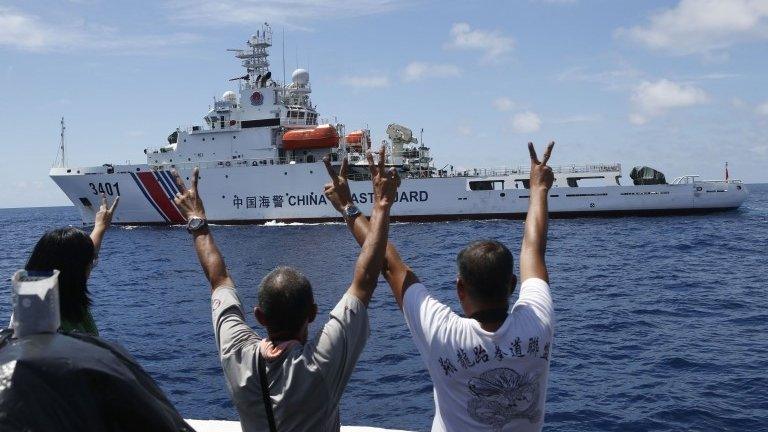Vietnam anti-China protest: Factories burnt
- Published
The BBC's Nga Pham says Chinese speakers have been warned to limit their movement in Vietnam
At least 15 foreign-owned factories have been set on fire amid anti-China protests at industrial parks in southern Vietnam.
Hundreds more were attacked by some of the 20,000 workers who protesting in the streets of Binh Duong province.
They are protesting after China moved a drilling rig into waters also claimed by Vietnam earlier this month.
No casualties have been reported but officials said at least 200 people had been arrested over the violence.
In response to the protests, a Chinese foreign ministry spokesman said Vietnam was the "provocateur", and that Beijing had expressed concern to Hanoi.
Meanwhile, Taiwan summoned the Vietnamese envoy to Taipei after reports that many Taiwanese firms were targeted having been mistaken by rioters for Chinese factories.
Singaporean and Japanese plants were also targeted.
Foreign investment fears
The protesters began gathering in Thuan An town, in Binh Duong - Vietnam's industrial heartland - on Monday, officials said.
They then moved on to two nearby industrial parks on Tuesday.
Three factories were set on fire on Tuesday evening after workers had gone home, a spokesperson for the Vietnam Singapore Industrial Park (VSIP) told the BBC.
An employee of a Singaporean company told the BBC they saw four burnt buildings on Wednesday morning, and another eight - including one belonging to a Taiwan-founded shoe firm - with shattered windows and smashed front gates.
"The protesters appeared to have targeted companies that had Chinese characters in their logos or signs," said the employee, who declined to be named.
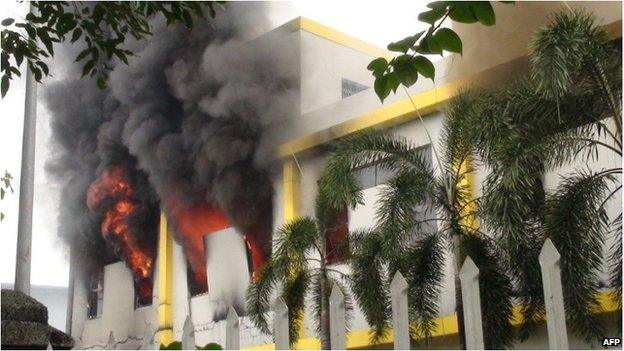
Firms with Chinese characters in their logos or signs were reportedly targeted
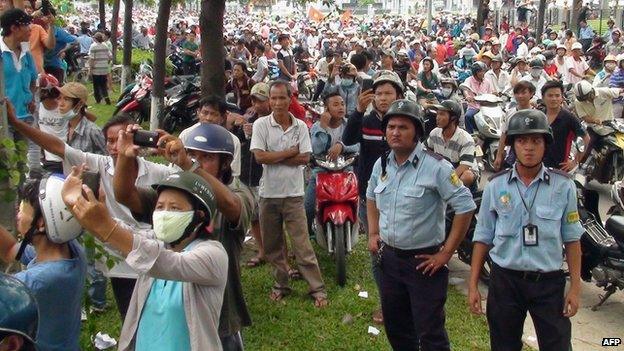
Protesters are angry at China's recent deployment of an oil rig in contested waters
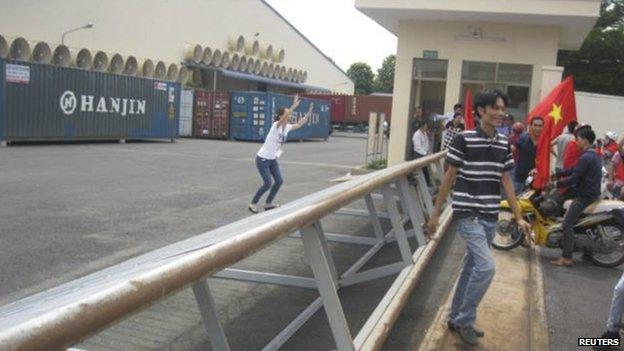
Employees of companies in the Vietnam Singapore Industrial Park appealed to protesters to stop
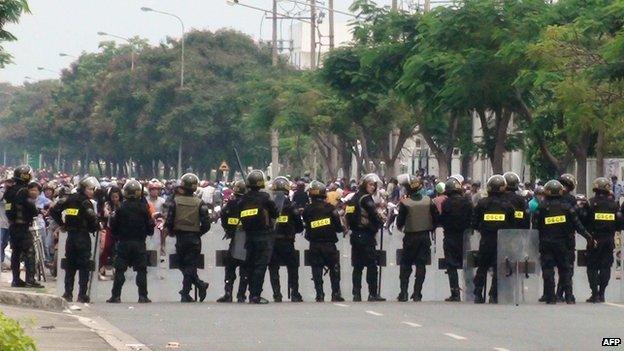
Riot police have moved in to try to contain the violence
One photo carried by Vietnamese media showed a factory had draped a South Korean flag at its entrance, external in a bid to stave off attacks.
The protest has spooked some foreign companies.
Reuters reports that Hong Kong-listed sports shoe maker Yue Yuen, which supplies footwear to Adidas, Nike and other international brands, had suspended production in Vietnam.
Territorial disputes
Earlier this month, China moved its Haiyang Shiyou 981 oil rig 120 nautical miles off the coast of Vietnam.
The area is near the Paracel Islands, over which China and Vietnam have contesting claims.
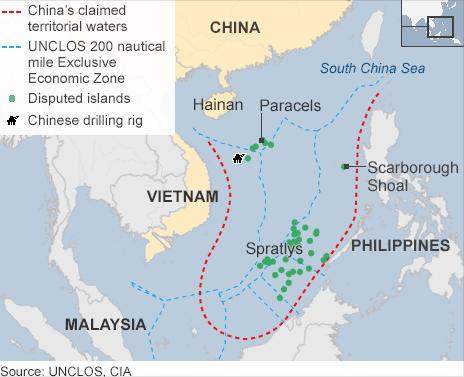
The move sparked a bitter protest from the Vietnamese government, which demanded an immediate pull-out, and clashes between ships from both countries around the rig.
Protests have been staged in Hanoi and Ho Chi Minh City, while on Tuesday the US warned China that its actions were "provocative".
Beijing claims a U-shaped swathe of the South China Sea that covers areas other South East Asian nations say are their territory.
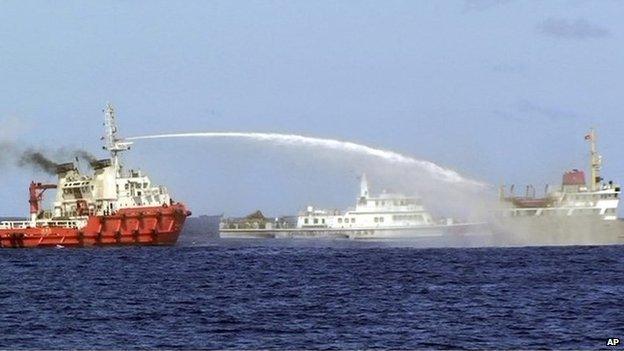
Ships from Vietnam and China have been exchanging water cannon fire near the controversial rig
The Philippines on Wednesday accused China of reclaiming land on a disputed South China Sea reef in order to build a new facility - possibly an airstrip or a military base.
Manila lodged a protest last month after images taken from the air showed China had been moving materials into Johnson Reef in the Spratly Islands, officials said.
"We're not exactly sure what are their intentions there," Foreign Secretary Albert del Rosario told AP news agency.
Ties between Beijing and Manila have deteriorated severely in recent months because of the territorial row.
Manila is taking Beijing to an international court over the issue. It also recently signed a security deal with the US allowing more troops onto its soil, in a move seen as reflecting the difficult ties with China.
- Published11 May 2014
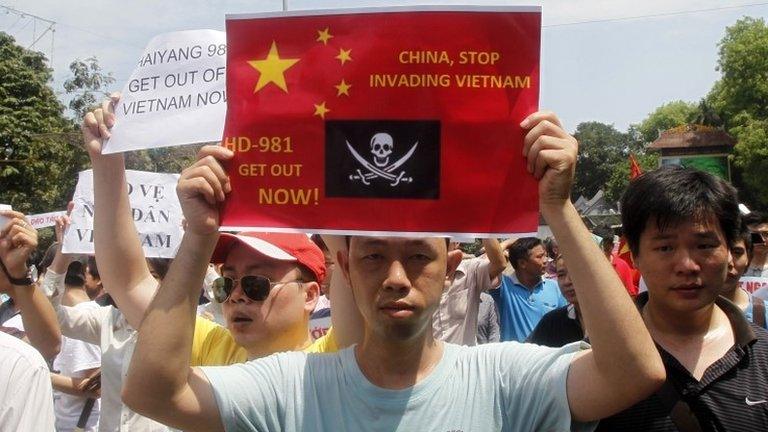
- Published8 May 2014
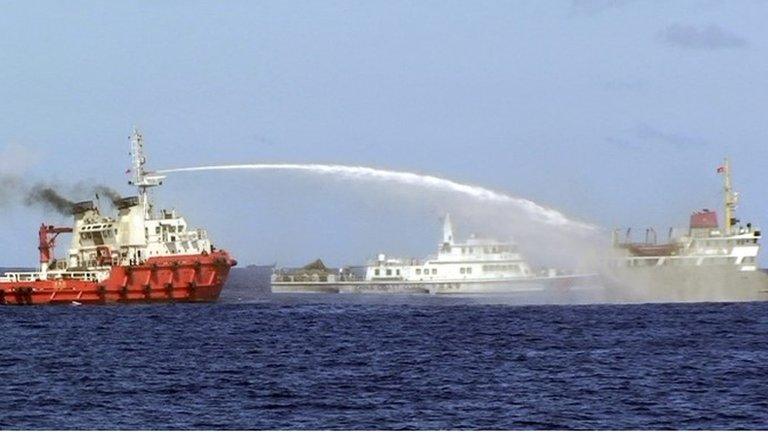
- Published7 July 2023
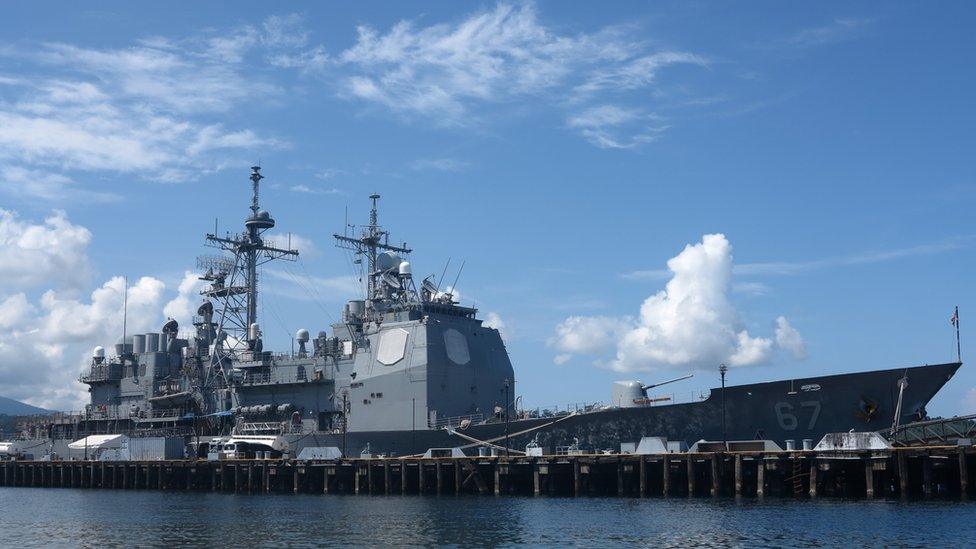
- Published15 January 2014
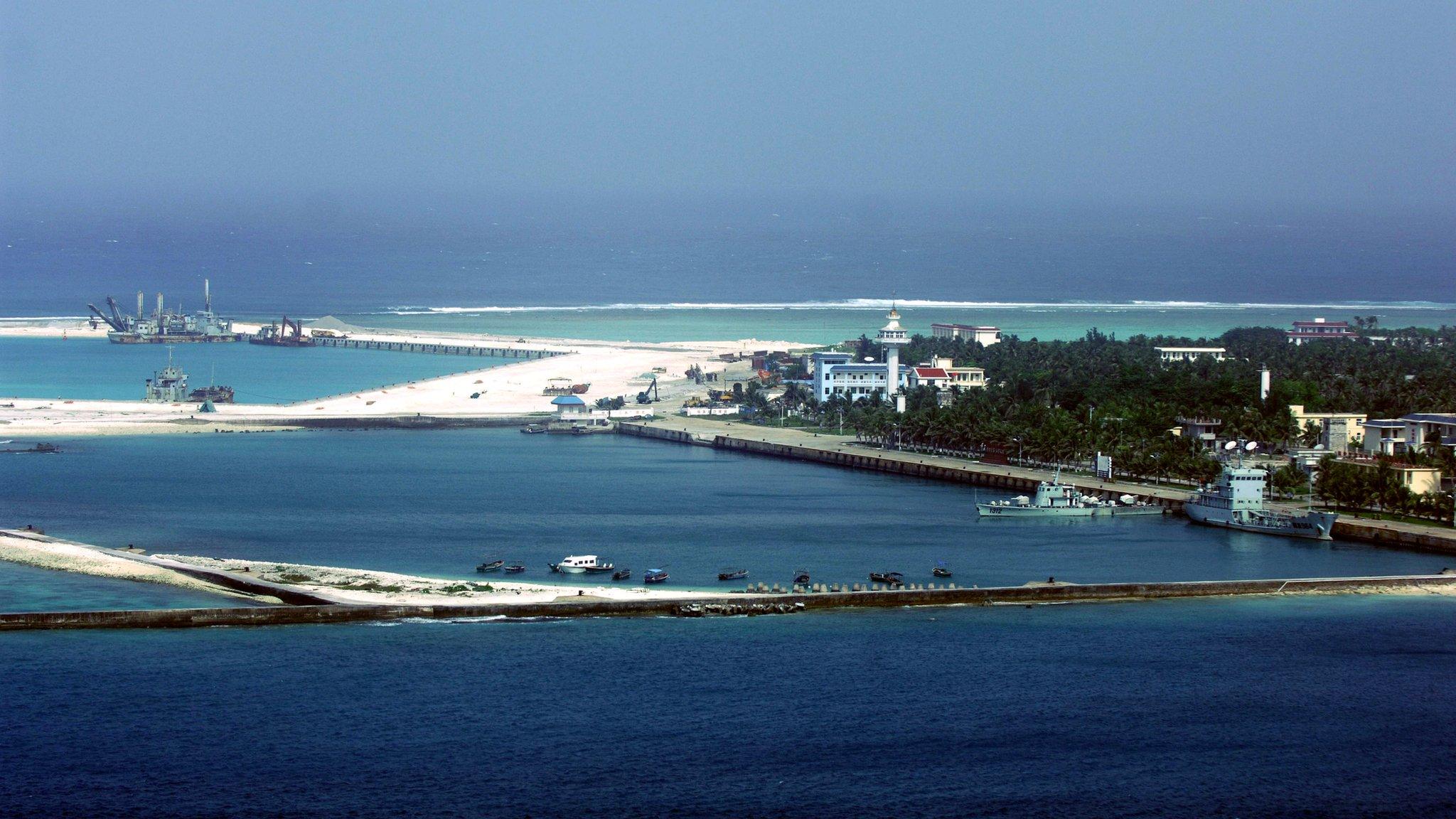
- Published31 March 2014
